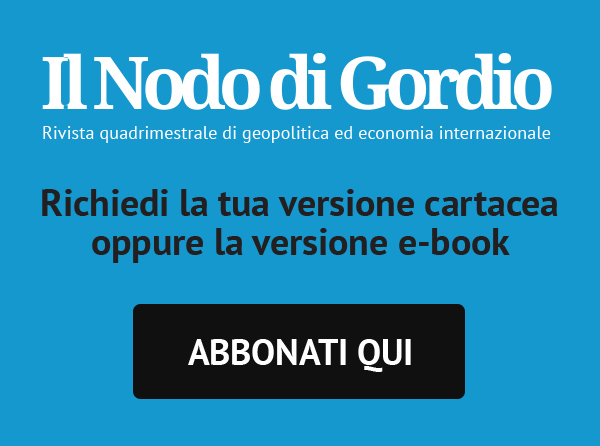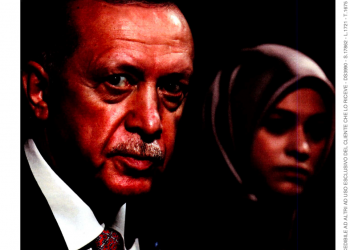The Case of Kazakhstan’s Cultural Policies

Kazakhstan’s cultural policy has been closely watched by the general public and by the politicians in the country probably for the very same reasons as in Italy and other members of the European Union. In the center of the political discourse are the very same issues: a) how to deal with the challenges of globalization; b) how to deal with the consequences of the regional integration and the emergence of the new supra-regional institutions, and last but not least, c) how to deal with the emergence of increasingly diverse and multi-cultural society in this nation-state. In this context the Concept of Cultural Policy, introduced in November 2014 helped to set up important framework for the cultural policy development, as the government of Kazakhstan has committed to reforming the state’s cultural policies and cultural landscape to achieve in the words of President Nursultan Nazarbayev “blossoming of our motherland. “[i] This step has also been supported by commitment not only to increase budget spending on the culture and various cultural projects, but also a commitment to introduce more nuanced approach in developing policies on multiculturalism, globalization and national identities in the country. The main question is whether this new state initiative would address the significant changes in the cultural and social landscapes in the country since the late 1990s.
Shifting Cultural Paradigm: Policy Debates
The debates about the future of the cultural policy and nature of relations between globalization and national identity in Kazakhstan in many ways reflect the essence of the debates on the future of multiculturalism in Western Europe. Like many countries in the European Union – France, Germany and Italy – Kazakhstan has to deal with many immediate and challenging issues: how to deal with ethnic and religious minorities, how to address the changing cultural landscape in the country and last but not least – how to smoothly integrate into the society a large number of recent migrants into the Kazakh society (almost one million people (or about 6 % of the country’s population) have arrived from such countries as Afghanistan, China, Iran, Kyrgyzstan and Uzbekistan between 1995 and 2015) [ii].
The conceptual frameworks of the debates in Kazakhstan are built around two very different theoretical schools: one is the theory of modernization and the second is the theory of multiculturalism. The concept of cultural, political, social and economic modernization through a specific set of state-led initiatives and policies was quite popular in developing countries in the 1960s and 1970s.
The concept of multiculturalism implies equal respect to various cultures in a society and policies promoting and celebrating cultural diversity and cultural differences by supporting each culture and refraining from both assimilation and segregation (George Crowder, 2013, Carl A. Grant, 2014).
For instance, Kazakhstan has been hosting the international Congress of Leaders of World and Traditional Religions in the capital – Astana for many years,[iii] bringing the clergy and intellectuals from different countries to discuss the most pressing global topics and challenges. At the same time, Kazakhstan’s government has been hosting many international festivals and competitions strongly believing that the open-door policy would help the Kazakh artists and members of the creative community to be more competitive.
The Cultural Changes and the Impact of Independence and Globalization
In his presidential election campaign President Nursultan Nazarbayev of Kazakhstan pledged special attention to cultural policy through implementation of the Concept of Cultural Policy, envisioned to streamline the country’s policies on culture, cultural education and arts to strengthen what he calls “the genetic [cultural] code of the nation” and he suggested that “cultural heritage and common historical experience [needed for] further the preservation and development of cultural, spiritual, information exchange between our peoples.”[iv]

The Recent Development
The introduction of the Concept has intended promoting policies of multiculturalism to the next level and supporting the cultural inclusiveness in the country by providing space to all ethnic groups to promote and celebrate their culture. In the line with this thinking – what I call “statutory multiculturalism” – policy makers believe that all ethnic groups also have to make their own contribution to promoting stability and social harmony by being politically, socially and culturally more active. The Concept was introduced just a few months before the financial crisis in Kazakhstan created by a double-hit from tanking oil prices (energy exports are the main source of hard currency revenue for Kazakhstan) and rapid devaluation of the Russian ruble which hit the competitiveness of Kazakhstan’s exports to its main trading partner in the Eurasian Custom Union. These events led to significant budget cuts introduced by the government in January-February 2015 which in turn very negatively affected the country’s ability to fund and reform many public programs and projects, especially in the cultural area. In this environment, the previous model of cultural policy, which was built on an assumption of never-ending subsidies and active role of the state in cultural areas, came under significant pressure. For example, despite the financial crisis and significant budget cuts in many areas, a large number of Kazakh citizens still prefer taking holidays abroad, spending up to US$3-4 billion on tourism and cultural services in Turkey, the Middle East and Eastern Europe, citing poor services and little choice back home (according to Kapital newspaper estimates, the country’s tourism potential is utilized only by 5-10 percent of its population.[v]
The Challenges Ahead
The Concept has identified policy directions and policy priorities for the next few decades for institutional building which should go beyond the dealing with challenges of integrating of multiethnic society and various ethnic groups in the Kazakh society and Kazakh nation. There is emerging new dimension of the institution building – dealing with the multi-confessional nature of the society and therefore building better understanding and better communication between various religious groups in the society.[vi]
Rafis Abazov
PhD, is a visiting professor at Al Farabi Kazakh National University and a director of MDP/Global Classroom Program. He also teaches at SIPA, Columbia University, NY.
Andrey Khazbulatov
PhD, is the Director of the Kazakh Research Institute of Culture, Astana, Kazakhstan, and one of the lead experts of the Commission on development of the Concept of Cultural Policy of the Republic of Kazakhstan.
[i] Kazakhstanskaya Pravda, April 21, 2015. P. 2.
[ii] Most of the migrants are Uralmans – the representatives of ethnic Kazakhs groups who lived in various countries. The population of Kazakhstan was 17 million people (as of January 2015).
[iii] For more information and for details please see: http://www.religions-congress.org/component/option,com_frontpage/Itemid,1/lang,english/
[iv] The Speech by Nursultan Nazarbayev “Eurasian Culture in the New World: http://www.akorda.kz/ru/category/texts_performances
[v] Kapital. 02 April 2015
[vi] Abazov, Rafis, and Irina Alexandrova. ‘Megabits Versus Wahhabits: Kazakhstan’s Policy on Islamic Content on the Internet”. Asian Politics and Policy. Volume 6, issue 4, 2014. Pp. 639-643.



















Today the development of culture and cultural potential is one of the major priorities of the development of many peoples and nations of the world. Glad to know that Kazakhstan’s government is taking these steps to create favorable conditions for preservation and development of cultural industry.
This issue can be considered from two angles: on the one hand, the policy of multiculturalism in Kazakhstan has been successfully conducted, taking into account the peaceful environment in country, but on the other hand, there are certain unsolved problems in this regard. In any case, careful study and proper implementation of this political direction are extremely important and necessary for Kazakhstan.
Kazakhstan, forming and transforming its cultural, multicultural policies is entering a new phase of development. Research works like that particular one should be taken into account in order to prevent the appearance of possible flaws in policies as well as shed light on what needs to be corrected now.